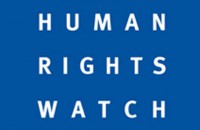Bangladesh: Investigate Killing of Witness, Need to Protect Participants in War Crimes Court
New York, Dec. 24 (NsNewsWire) — The Bangladeshi authorities should urgently set up an effective mechanism to protect witnesses in cases before the International Crimes Tribunal (ICT), Human Rights Watch said on Dec. 23.
Prosecution witness Mustafa Howlader died on December 10, 2013, after being attacked in his home. Howlader appeared in the case against Delwar Hossain Sayedee, a leading figure in the Jamaat-e-Islaami party.
“War crimes trials have become flashpoints for political tension and violence in Bangladesh,” said Brad Adams, Asia director. “The killing of a prosecution witness will frighten past and future war crimes trial witnesses, and some may choose not to testify.”
Howlader had been receiving death threats from unknown callers. As a result, local police were assigned to protect him. However, according to his son, police officers expected the family to feed them, which cost them more than Howlader made in a day.
Howlader’s son told Human Rights Watch: “My father was a poor man, someday he could not even earn 100 taka [US$1.28]. So he [spoke to] police guarding the house and told them to give protection only when he is out.” After this, the police provided Howlader an escort on his way back from work, but did not stay to guard the house.
Howlader’s family members reported to Human Rights Watch that the attacker had first attempted to “chop” Howlader’s wife, seriously injuring her in the arm, before proceeding to attack Howlader with a machete. An initial police statement claimed that it was a botched burglary. Police subsequently said preliminary investigations suggest that the attackers were Jamaat members, but inquiries were ongoing. Six people have been arrested. Jamaat has denied any involvement in the attack.
“Witnesses, who often live in remote villages, are owed a serious protection program before, during, and after they give testimony to the court,” Adams said. “The state has failed Howlader and his family. A genuine witness protection system should not ask victims to choose between their safety and feeding their families.”
In another attack on a witness, Ranjit Kumar Nath, who testified against Jamaat Secretary General Ali Mohammed Mujaheed, reported that petrol bombs had been flung at his shop and at his home around midnight on December 15. His shop was partially burned, but the bomb at his home did not explode. Like Howlader, Nath had previously reported threats against him relating to his testimony. Although he had filed an official complaint, he was not given any police protection.
Human Rights Watch has received reports of threats against other witnesses. Bangladesh media have reported attacks on the houses of Justice Fazle Kabir and Justice Surendra Kumar Sinha, who were on the panel of judges that sentenced Jamaat leader Abdul Qader Mollah to death.
On December 10, ICT judge Kabir, commenting specifically on Howlader’s death, called on the prosecution to ensure witness security, saying that, “It is not acceptable in an independent country that a witness is killed for testifying in the court.”
Human Rights Watch and others called for the establishment of a formal witness protection program before the trials began in 2010. Officials claim a program has been established, but it is ad hoc and informal, resulting in weaknesses that contributed to Howlader’s death. The authorities should establish a neutral office, under the ICT Registrar, tasked specifically with protection and support services to witnesses during pretrial, trial, and post-trial stages, following on models established by international tribunals, including the International Criminal Court. In order for such an office to be effective, however, it must be adequately resourced and officers working in the unit should be properly trained in assessing protection concerns of witnesses referred to them by either party or the bench.
Amendments made to the ICT Act in 2011 authorized the tribunal to ensure the physical safety of witnesses, including ordering in camera proceedings if necessary, but stopped short of setting up a formal witness protection program. Human Rights Watch also called for an independent, transparent, and speedy investigation into the killing of Howlader. This attack and reports of threats against other witnesses are likely to have a chilling effect on other witnesses, particularly in the charged climate in Bangladesh over the conduct of the trials carried out by the ICT.
Human Rights Watch called for all sides to these contested trials to refrain from violence against those involved in the trials in any capacity. In particular, Human Rights Watch called on the Jamaat party to ensure cooperation with the police in investigations against its members. Jamaat has made public statements to its members to renounce any form of reprisal, whether physical or verbal, against those they perceive as aiding in the trials against their leadership, but the party must show that these words translate into action.
“Human Rights Watch has long supported a fair and impartial justice process for the 1971 war crimes,” Adams said. “But without prompt action, witnesses have every reason to fear reprisals and therefore refuse to testify. The judges should use their powers to order protection for witnesses who appear before them, and this power must be actively harnessed.”
